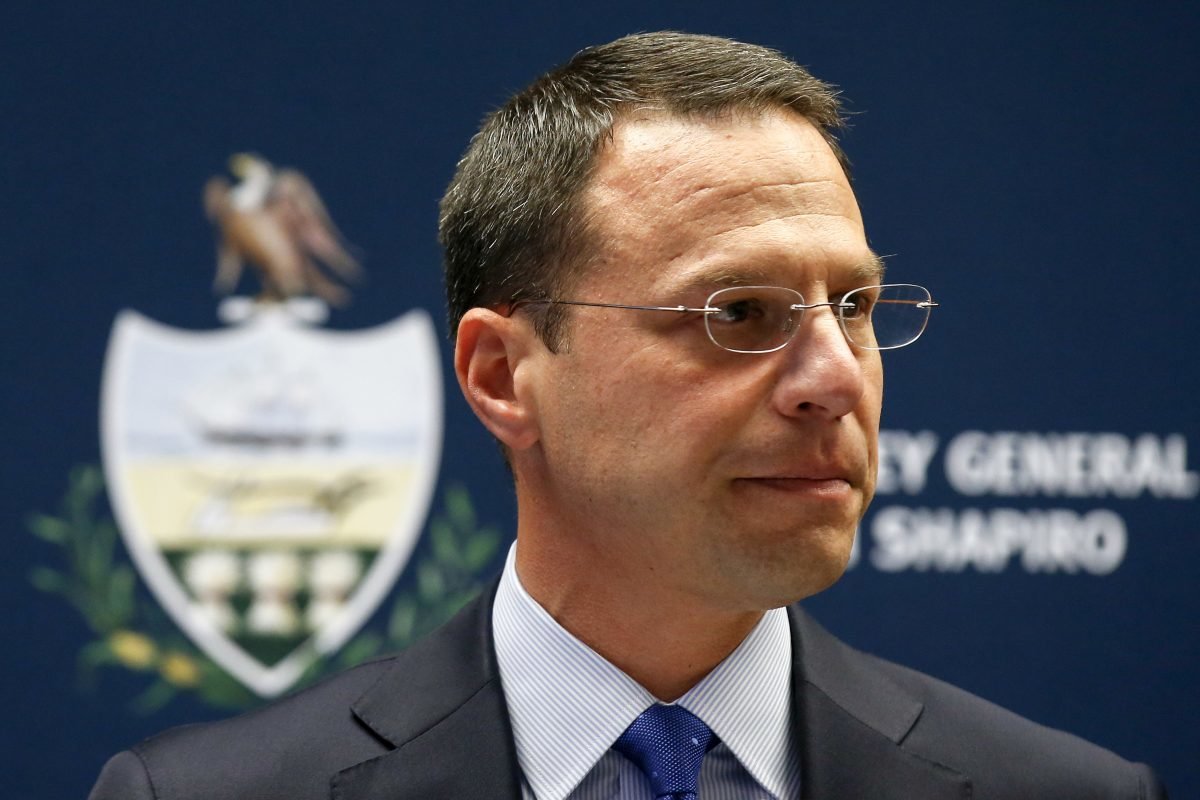Pa. Supreme Court Blocks Release of Grand Jury Report into Clergy Sex Abuse
By Angela Couloumbis & Liz Navratil
The Pennsylvania Supreme Court has agreed to indefinitely block the release of a grand jury report detailing decades of clergy sex abuse in six of the state’s eight Roman Catholic dioceses. In a two-paragraph order made public Wednesday, the state’s highest court said it granted requests from unnamed individuals or institutions to prevent the public release of the much-anticipated report. “The Honorable Norman A. Krumenacker, III, and the Office of the Attorney General are enjoined from releasing Report No. 1 of the 40th Statewide Investigating Grand Jury pending further order of this Court,” it read, citing the Cambria County judge who has overseen the panel’s work. The order — unsigned and released in the name of the entire court — throws into question the results of a sweeping probe that spanned at least two years and could implicate hundreds of clergy and other officials across the state. The investigation focused on child sex abuse and cover-ups in every Catholic diocese in the state except those in Philadelphia and Altoona-Johnstown — two dioceses that in past years endured similar scrutiny — and was expected to run 800 or more pages long. Some said the report could be unprecedented both by reviewing nearly every diocese in a single state, and by exploring the role that other officials outside the church may have played in enabling or concealing child sex abuse. Attorney General Josh Shapiro, a Democrat whose office spearheaded the probe, has said he had hoped to publicly speak about the grand jury’s investigation by month’s end. “The only thing that could stop these findings from becoming public at that time is if one of the bishops or dioceses would seek to delay or prevent this public accounting,” Shapiro said in a May 21 statement. In response to the Supreme Court order, Shapiro’s office said: “My legal team and I will continue fighting tirelessly to make sure the victims of this abuse are able to tell their stories and the findings of this investigation are made public to the people of Pennsylvania.” Bishops in all six dioceses have stated publicly that they would not block the release of the report. It is not known whether any of the people or groups who petitioned the high court to keep it under wraps are associated with the church. In its order, the Supreme Court did not signal who filed the petition or when, explain its reasoning for granting the request, or say how long it would take to consider the issue. Kimberly Bathgate, a spokesperson for the court, said the justices did not publicly explain their thinking because “all grand jury matters are sealed, including the rationale.” However, the court has used its power before — at least in one recent high-profile case, one involving allegations of state officials sharing pornography on state-owned computers — to unseal orders that provided insight into its legal decisions touching on grand jury issues. Asked why it had chosen not to do so in the current clergy sex-abuse case, Bathgate said: “Each case is different.” The injunction was denounced by some victims and others who have anxiously awaited the report’s release. Rep. Mark Rozzi (D., Berks), one of the dozens of victims who testified before the grand jury, called the court’s decision a “travesty of justice and insult to all victims of childhood sex abuse.” “It’s just like it’s been since Day One with me, kick us to the curb. Let the trash on the curb get old, maybe we’ll rot and die and go away. We’re not going away. I’m not going away, and I can promise that to all the victims across the commonwealth,” said Rozzi, who has been among the advocates pressing for the state to extend the statute of limitations so older victims can sue their abusers. Rozzi added that releasing the report would have been a great step forward for the victims’ mental and physical health. The Inquirer and Daily News have reported that one victim who testified before the grand jury is said to have attempted suicide, and from her hospital bed implored the grand jury to finish its work. A glimpse of the report’s scope and sweep, as well as the behind-the-scenes legal fight to halt its release, came last month from Krumenacker. In a ruling that he unsealed for the public to see, the judge denied a request by unnamed petitioners seeking to hold confidential hearings to challenge the claims or evidence presented to the grand jury. The judge said agreeing to such a request would upend the role of the grand jury, which he said was to investigate rather than adjudicate. But his denial paved the way for an appeal to the state’s highest court, though whether or not it was the same petitioners — or the same argument — was not immediately clear. Lawyers for the unnamed petitioners who appealed to Krumenacker either did not return calls or declined to comment Wednesday.
|
.
Any original material on these pages is copyright © BishopAccountability.org 2004. Reproduce freely with attribution.
